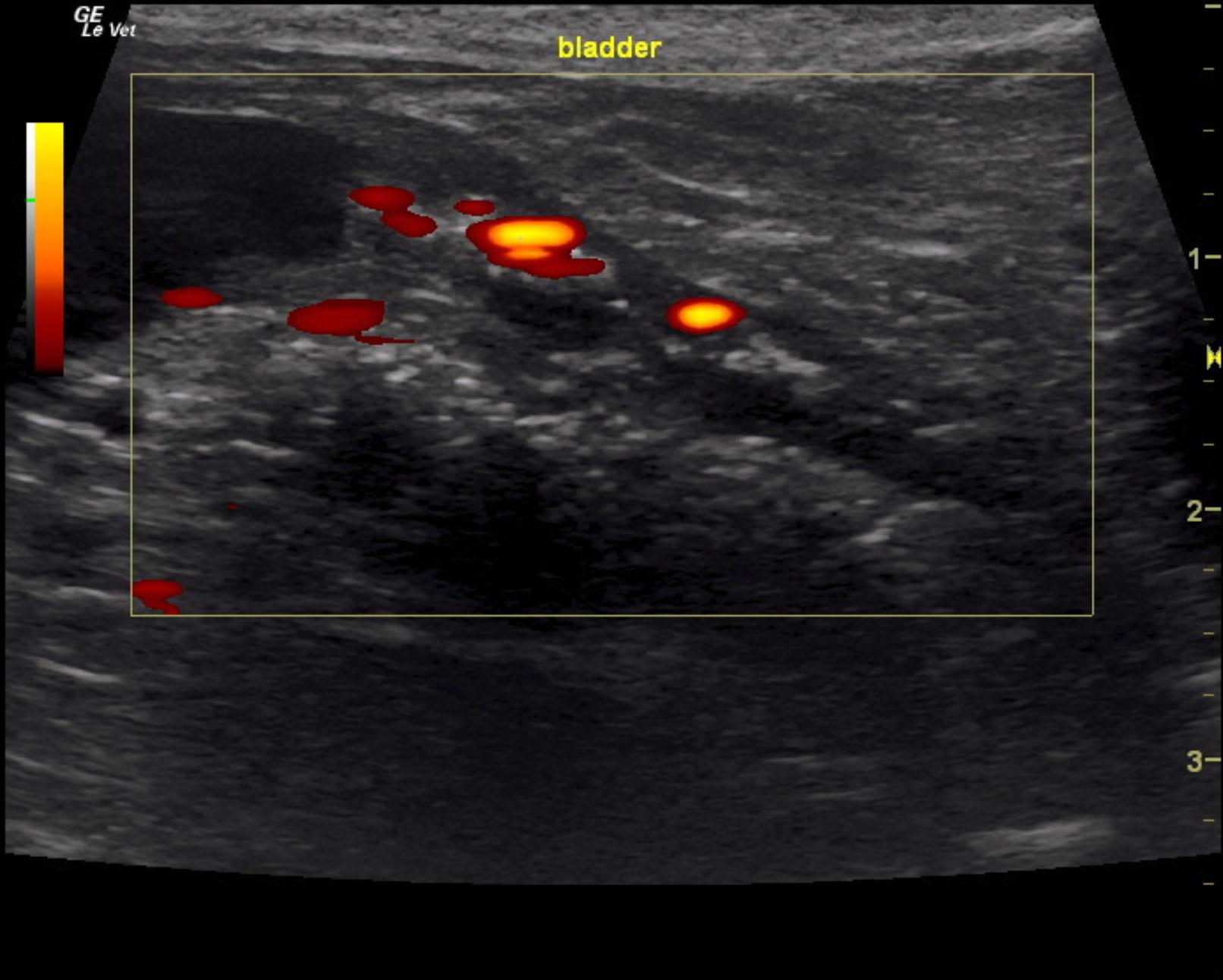An 11-year-old SF Dachshund with a history of recurrent UTI was presented for evaluation of chronic, inappropriate urination and more recently pollakiuria. Urinalysis showed isosthenuria and hematuria. Abnormalities on serum biochemistry were mildly elevated ALP and AST activity, 95, CPK 1944, albumin 4.1, total protein 7.9.
An 11-year-old SF Dachshund with a history of recurrent UTI was presented for evaluation of chronic, inappropriate urination and more recently pollakiuria. Urinalysis showed isosthenuria and hematuria. Abnormalities on serum biochemistry were mildly elevated ALP and AST activity, 95, CPK 1944, albumin 4.1, total protein 7.9.
